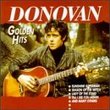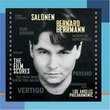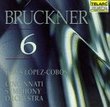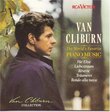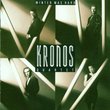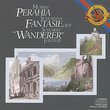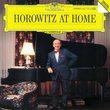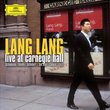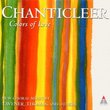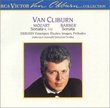| All Artists: Elliott Carter, Helmuth Kolbe, Arthur Weisberg, Paul Jacobs, Contemporary Chamber Ensemble, Gilbert Kalish Title: Elliott Carter: Sonata for Flute, Oboe, Cello & Harpsichord; Sonata for Cello & Piano; Double Concerto for Harpsichor Members Wishing: 3 Total Copies: 0 Label: Nonesuch Release Date: 3/24/1992 Genre: Classical Styles: Chamber Music, Forms & Genres, Concertos, Historical Periods, Modern, 20th, & 21st Century, Instruments, Keyboard, Strings Number of Discs: 1 SwapaCD Credits: 1 UPC: 075597918328 |
Search - Elliott Carter, Helmuth Kolbe, Arthur Weisberg :: Elliott Carter: Sonata for Flute, Oboe, Cello & Harpsichord; Sonata for Cello & Piano; Double Concerto for Harpsichor
CD DetailsSimilarly Requested CDs
|
CD ReviewsThe Essential Elliott Carter Joe Barron | Philadelphia, PA, | 02/18/2001 (5 out of 5 stars) "Carter has been composing so much good music over the last decade that it's easy to forget he was writing classics before many of us were born. The pieces on this disk are a case in point--two generations of musicians have grown up since the earliest of them, the Cello Sonata, appeared in 1948. The sonata has been recorded probably more often than any other of Carter's works. New performances are appearing almost every day, but it's hard to see how they can better Joel Krosnick's warm, fluent interpretation. The rendition of the Sonata for Flute, Oboe, Cello, and Harpsichord is the best of several available--exuberant, dancelike, unbuttoned--and the performance of the Double Concerto is the only one available at present. That would scandal if the playing weren't so supple and sensitive. This disk is essential Carter: three masterpieces, each from a different decade, and each one a milestone in the composer's development. It is the one CD I would recommend to anyone approaching Carter's mature work for the first time." A good place to start with Carter Joe Barron | 05/17/2004 (5 out of 5 stars) "Carter is considered to be perhaps the greatest living composer, and I didn't know any of his music, so after browsing the internet (and in particular,Amazon) for a place to start, I obtained this CD. I have been delighted with it. All of this music takes some acclimation, but that's the nice thing about a CD--you can stick a CD of new music in the car stereo and play it as often as you need to until it starts to reveal its treasures. In the case of this CD, all three works are rich in complexity and have required quite a bit of listening, but the effort was well worth it--two of the three works have revealed lots of treasures. The Cello Sonata is full of wonderful, even magical moments. The Sonata for Flute, Oboe... has been only slightly less rewarding. I like its playfulness. The only work on this disc that has proved resistant so far is the Double Concerto. Carter's unique twist on tonality that makes the other works so interesting seems to have disappeared in the Double Concerto, written later in his career, and I haven't found much to like in it. But the CD is worth obtaining for the two sonatas. They are great works." Like listening to barbed wire (double concerto)very good(cel Peter Heddon | 10/08/2005 (3 out of 5 stars) "The Double Concerto begins promisingly enough with mysterious percussion rustlings from which string tremelos emerge,soon echoed by the solo piano and harpsichord.All this has undoubted poetry but it has to be said,returning to the piece after some ten years that grasping the whole is pretty tricky and the climactic moments (track14!) are somewhat akin to listening to barbed wire.For all Carter's harmonic formulations(or perhaps because of) the pitch content often sounds rather lifeless,it's as if there's no centre of any kind.Yes,the various skitterings of the two soloists are enjoyable but i can't imagine this piece ever being taken up in a big way.
The cello sonata is the best piece on the disc.The rhetoric is more conventional than the concerto,even neo-classical and Carter is on much more sure territory here:There's a fantastic jazz-like swing to the second movement and the opening moderato with the mechanical ticking on the piano accompanying the passionate cello is one of Carter's most inspired creations." |

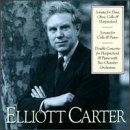
 Track Listings (14) - Disc #1
Track Listings (14) - Disc #1